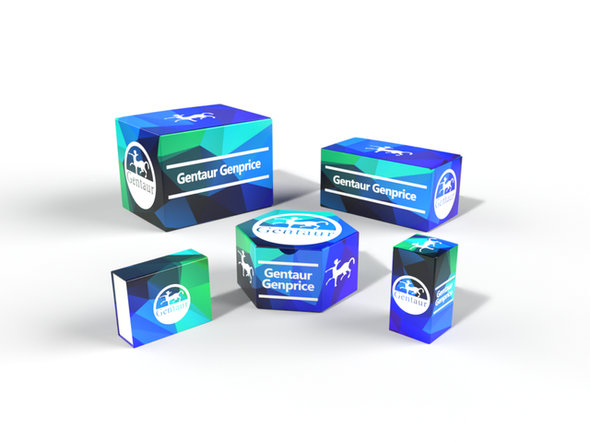740
Sheep Glycogen phosphorylase, brain form (PYGB) ELISA Kit | AE24913SH
- SKU:
- 740-AE24913SH
- Availability:
- Usually ships in 5 working days
Description
Sheep Glycogen phosphorylase, brain form (PYGB) ELISA Kit | AE24913SH | Gentaur UK, US & Europe Distribution
Species Reactivity: Sheep (Ovis aries)
Abbreviation: PYGB
Alternative Name: MGC9213; brain glycogen phosphorylase|glycogen phosphorylase B
Application: ELISA
Range: Request Information
Sensitivity: Request Information
Intra-Assay: ≤5.9%
Inter-Assay: ≤8.2%
Recovery: 0, 98
Sample Type: Serum, Plasma, Other biological fluids
Detection Method: Sandwich
Analysis Method : Quantitive
Test Principale: This assay employs a two-site sandwich ELISA to quantitate PYGB in samples. An antibody specific for PYGB has been pre-coated onto a microplate. Standards and samples are pipetted into the wells and anyPYGB present is bound by the immobilized antibody. After removing any unbound substances, a biotin-conjugated antibody specific for PYGB is added to the wells. After washing, Streptavidin conjugated Horseradish Peroxidase (HRP) is added to the wells. Following a wash to remove any unbound avidin-enzyme reagent, a substrate solution is added to the wells and color develops in proportion to the amount of PYGB bound in the initial step. The color development is stopped and the intensity of the color is measured.
Product Overview: PYGB is a new isozyme of glycogen phosphorylase (1, 4-D-glucan:orthosphosphate D-glucosyltransferase; EC 2.4.1.1) from a cDNA library prepared from a human brain astrocytoma cell line. Blot-hybridization analysis showed that the message is preferentially expressed in human brain, but is also found at a low level in human fetal liver and adult liver and muscle tissues. The protein sequence deduced from the nucleotide sequence was 862 amino acids long compared with 846 and 841 amino acids for the liver (PYGL) and muscle (PYGM) isozymes, respectively. The greater length of brain phosphorylase was found to be due entirely to an extension at the c-terminal portion of the protein. Muscle and brain isozymes shared greater similarities with each other than either did with the liver sequence.
Stability: The stability of ELISA kit is determined by the loss rate of activity. The loss rate of this kit is less than 5% within the expiration date under appropriate storage condition. The loss rate was determined by accelerated thermal degradation test. Keep the kit at 37°C for 4 and 7 days, and compare O.D.values of the kit kept at 37°C with that of at recommended temperature. (referring from China Biological Products Standard, which was calculated by the Arrhenius equation. For ELISA kit, 4 days storage at 37°C can be considered as 6 months at 2 - 8°C, which means 7 days at 37°C equaling 12 months at 2 - 8°C) .






